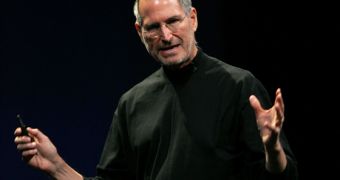It’s no mystery that Steve Jobs is the heart and soul of Apple, but many believe the company will be able to continue its ascension even after its iconic CEO is no longer at the helm.
Electronic Arts founder, Trip Hawkins, is not one of those people. He believes that once Mr. Jobs steps out, Apple will find itself in a whole lot of trouble.
He started by telling IndustryGamers that “If you look at any institution in history – look at the Roman Empire – anything in history, and what it looks like when it’s peaking.”
“Look at Apple, and how can you say it’s not peaking? The CEO is still alive, let’s start there. They invented this tablet thing that’s going to be really big. They’ve done really well by reinventing the phone. They breathed new life into the Mac. They’ve got this super-high marketing.” All these things are about as good as they ever can be – how much better can it really get?”, Hawkins elaborated.
“The thing is, it may take another year or two before it starts to decline, but it has to – everything does. Everything revolves so much around Steve, and no matter how good his lieutenants are, they’re not Steve. None of us is going to live forever, though I hope he lives for a really long time,” Hawkins said.
The EA founder also felt it was necessary to opine on the Flash debacle, even though that subject is dead and buried.
Talking from a publisher’s perspective, Hawkins said “They’ve created this outlet and they had to have an excuse to keep you there, so they’re like, ‘Oh it’s nothing against Flash; we just prefer HTML5’.”
In his view, “Flash can actually make a really good game, and with HTML5 you can’t do that.”
“But give HTML5 another few years to mature, and that could solve the problem. Or Apple could be more generous about deciding to support more de facto standards like Flash, or at least let it run its course,” Hawkins told interviewers.
Softpedia note
What Hawkins probably doesn’t understand (like many others in the industry) is that Apple has designed the software and the hardware in its products so that they’re optimized for each other.
Adobe had failed to deliver a compelling Flash experience on the Mac years before the iPhone got out, so Apple was forced to say no to this CPU-hogging, battery-draining standard. It’s that simple.
Of course, that doesn’t mean Apple didn’t see an advantage in all this.

 14 DAY TRIAL //
14 DAY TRIAL //